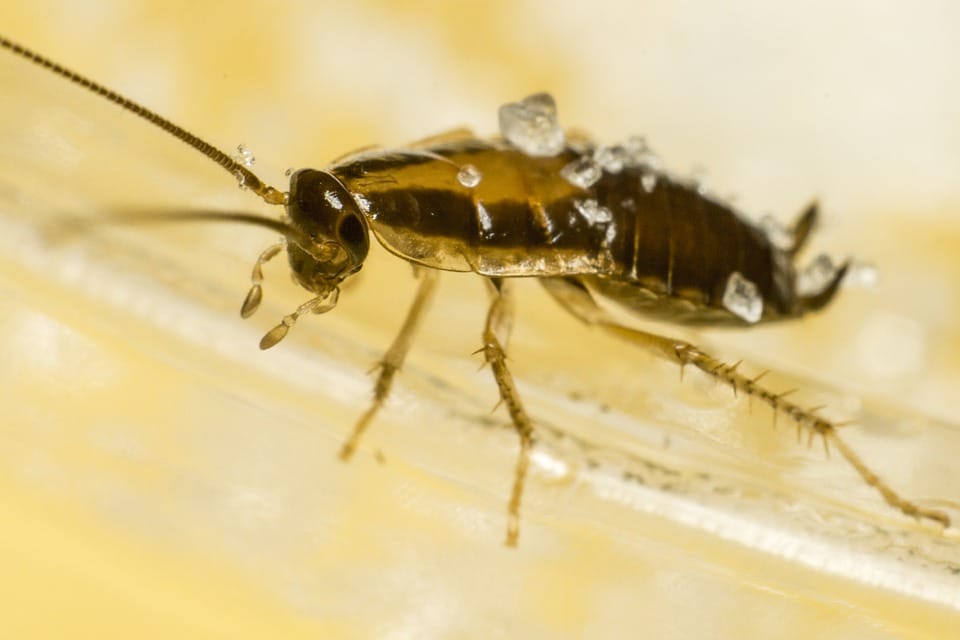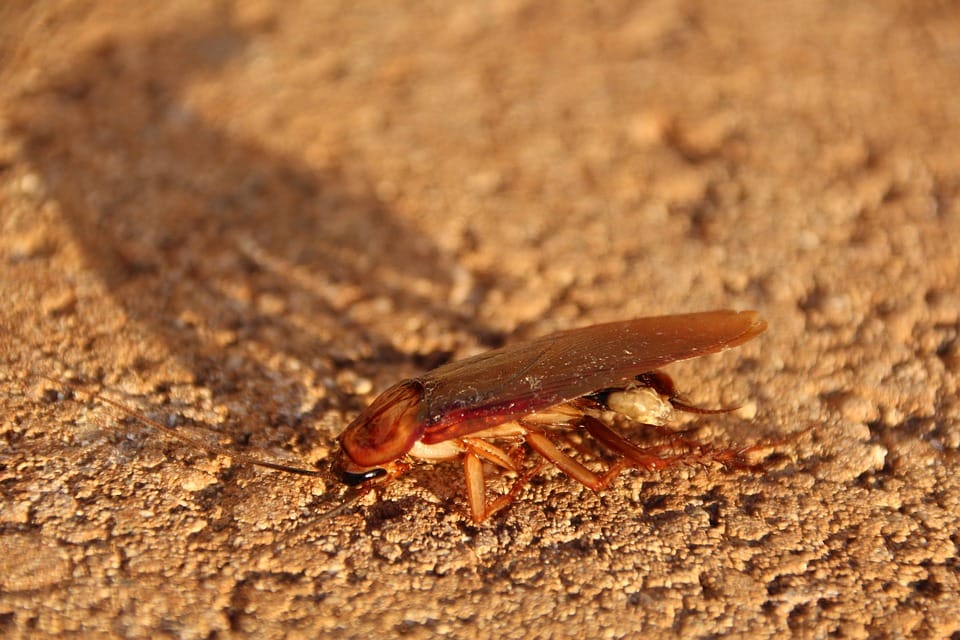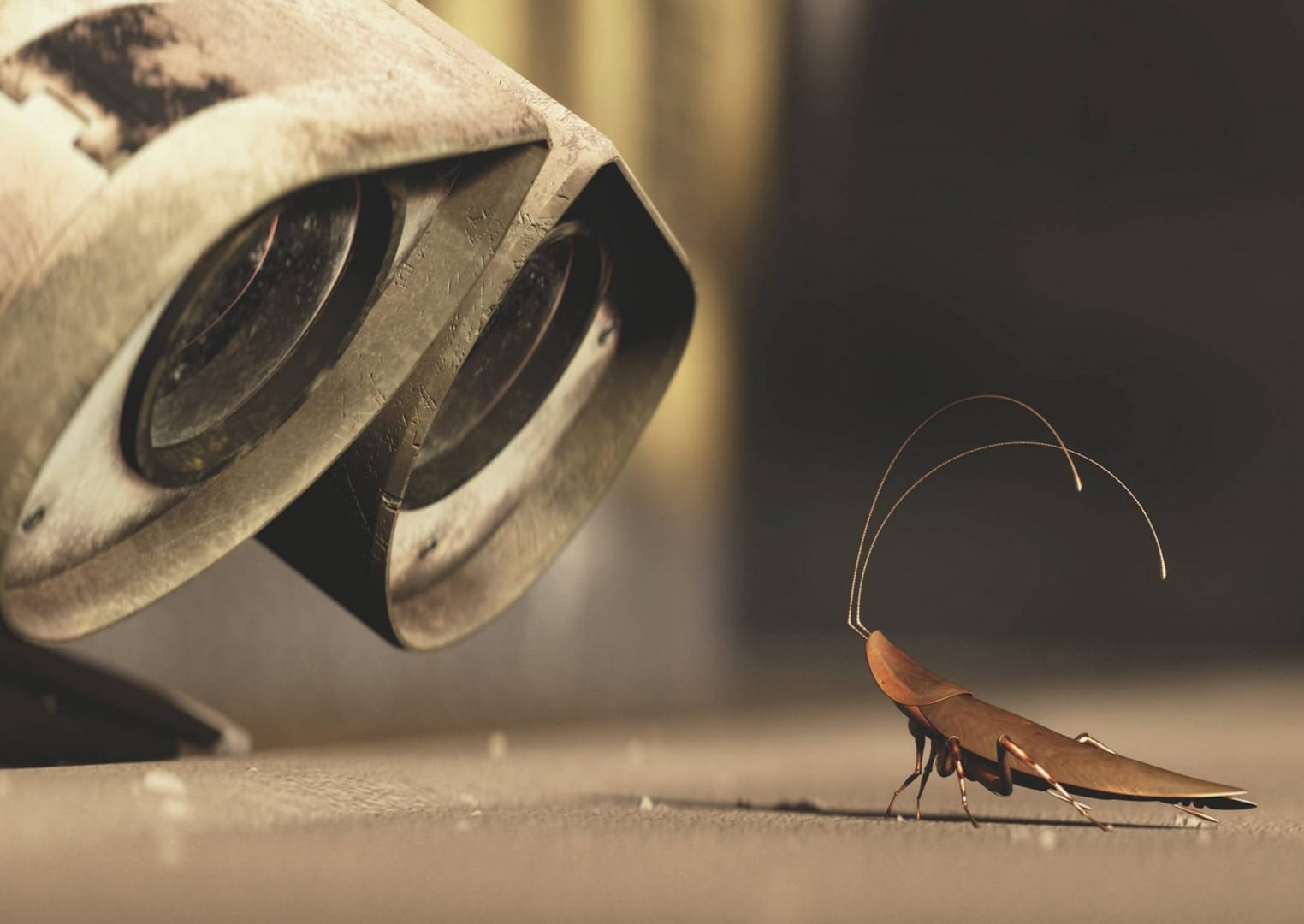There is a very common belief that cockroaches are so tenacious that they cannot even withstand the consequences of a nuclear explosion. We decided to check if this is true.
The myth that cockroaches are not afraid of radiation was widespread long before the advent of the Internet. There is mention of this in fiction literature. A popular selection on the Internet is “10 living creatures that can survive a nuclear war,” where cockroaches take second place. It is reposted by users "Peekaboo", it is found on popular science resources, even the media published it (for example, "Vesti.RU"). Sellers of anti-cockroach products claimthat these are the only creatures capable of surviving a nuclear explosion. People are interested in this in question and answer services (1, 2, 3).
Let's start with the fact that cockroaches will definitely not be able to survive a nuclear explosion directly: the temperature at the epicenter Maybe reach several thousand degrees Celsius, which will destroy all living things. If we talk about the consequences of a nuclear explosion, that is, the effects of radiation, then cockroaches still have some chances. But are they as great as is commonly believed?
The very first appearance of this myth attributed to media reports about the bombing of Hiroshima and Nagasaki - supposedly surviving cockroaches were seen in one of the cities. After this, the New York Times published an article in which it was said that the Third World War would be won not by the USA, not by the USSR, not by China, but by... cockroaches. But the fact is that the people in Hiroshima and Nagasaki did not all die instantly, but many of the survivors soon died from radiation sickness. Of course, no one monitored the health of the cockroaches that were allegedly seen there, so we don’t know whether they really survived or died a couple of hours after the meeting with journalists.
In 1959, American scientists conducted study on the effects of radiation on American cockroaches (Periplaneta americana). It turned out that exposure to radiation of 20,000 rads is fatal for cockroaches. In 1963, scientists Mary Ross and Donald Cochrane studied the effects of radiation - this time on the German cockroach (Blattella germanica). This, by the way, is the same red cockroach, the Prussian, well known to the residents of our strip. It turned out that 93% of immature individuals die already at 6400 rads, females become completely infertile when exposed to 3200 rads, and a significant suppression of reproductive function (which ultimately can also lead to the extinction of the species) can be observed already at exposures of 400 rads.
Scientists note that a dose ten times less would be lethal for humans than for cockroaches; in this sense, they are much more tenacious than us. But at the same time, they cannot be called record holders even among insects - there are species that are not even bothered by a dose of radiation lethal to cockroaches. For humans, a dose of 400–1000 rads is lethal. During the bombing of Hiroshima, people received dose radiation of 950 rad.

Why are cockroaches less susceptible to radiation than people? University of Massachusetts biologist Joe Kunkel connects This is because radiation does the most damage during cell division. And if the cells in the body of cockroaches divide only during the molting period (once a week), then the cells of the human body divide constantly. Accordingly, radiation has the most destructive effect on these insects only 48 hours a week (that’s how long molting lasts), but on humans - 24/7. It is easy to calculate who will suffer more from radiation.
Our colleagues from the American TV show “MythBusters” also decided to check whether cockroaches are really as resistant to radiation as is commonly believed. They put experiment: the same German cockroaches were divided into groups and exposed to different degrees of intensity - 1000 rad, 10,000 rad and 100,000 rad. The experiment lasted about a month, and in the end, half of the individuals from the first group and 30% from the second survived. From the third group, where the exposure to radiation was maximum, no one survived. Thus, we can conclude that yes, some cockroaches can survive a nuclear explosion (if they are far enough from the epicenter), but this greatly depends on the power of the bomb.
By the way, flour beetles, which also took part in this experiment, showed themselves to be more tenacious (as many as 10% of these insects survived exposure to 100,000 rads). Fruit flies, which were also exposed to radiation, could rival beetles in vitality. But they were let down by the fact that their life expectancy was already only about a month, so at the end of the experiment they all died - and it was impossible to find out how much radiation was to blame for this.

It is worth noting that there are more than 4,000 species of cockroaches, and studies have been conducted on only two of them. Therefore, it cannot be said with complete confidence that the conclusions drawn by scientists are valid for all these insects. Perhaps some of them are even more resistant to radiation than scientists currently believe.
At the same time, even if we assume that the radiation was strong enough to kill people, and the cockroaches were still able to survive, some researchers believe that they will not survive us for long - at least those of them that have long lived side by side with humans, for example those same German cockroaches. Canadian science popularizers made a documentary film "Aftermath: The World After People", aired on the National Geographic Channel, which suggested that just six months after humans disappear, billions of cockroaches will die. They claim that cockroaches are heat-loving creatures that survive in northern latitudes only thanks to heated houses. If there are no people to provide such conditions, these insects will die out as soon as winter comes.
So if anyone wins a nuclear war, it will obviously not be cockroaches. Most likely, it will be the bacterium Deinococcus radiodurans. This organism capable tolerate radiation doses thousands of times higher than those that would be fatal to both humans and cockroaches without harm.
Header image: m/f “WALL-E”, dir. E. Stanton, stage. E. Stanton, D. Reardon, music. T. Newman, 2008
Half-truth
Read on the topic:
- Cockroaches: ecology, behavior and natural history
- FAQ about cockroaches
- Is it true that cacti protect against computer radiation?
If you find a spelling or grammatical error, please let us know by highlighting the error text and clicking Ctrl+Enter.






